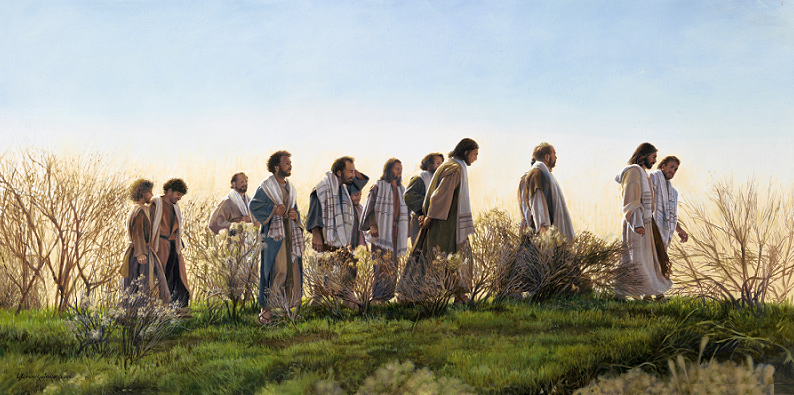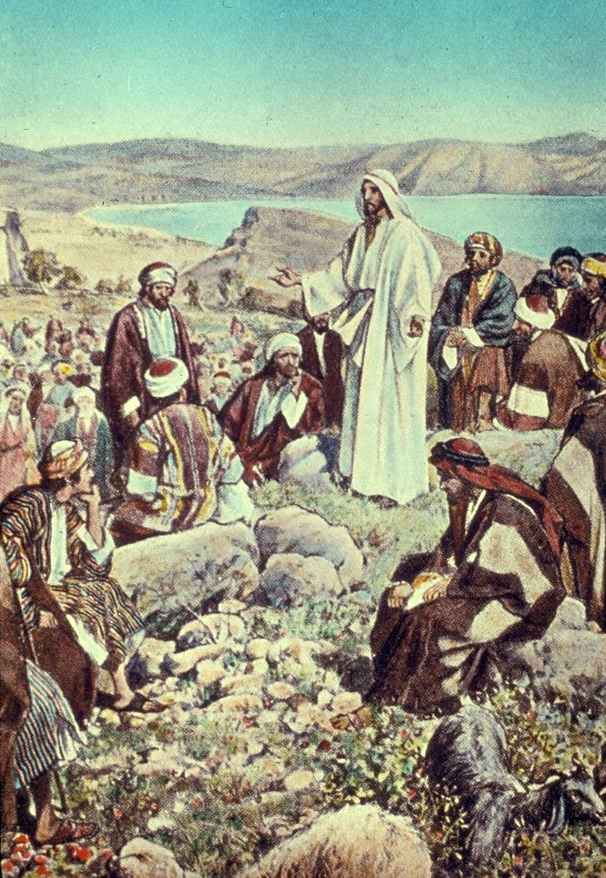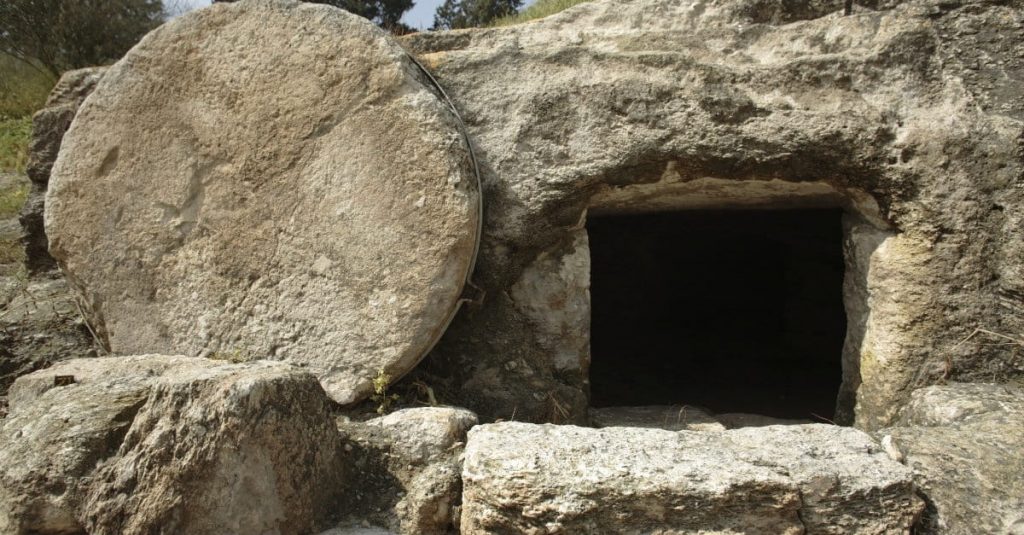
Editor’s note: The following comprises the fourth chapter, third part (C1), of The Gospel of Luke: An Exposition, by Charles R. Erdman (published 1936). All spelling in the original.
1. The Choice of the Twelve (6:12-19)
___________________________________________________
12 And it came to pass in these days, that he went out into the mountain to pray; and he continued all night in prayer to God. 13 And when it was day, he called his disciples; and he chose from them twelve, whom also he named apostles: 14 Simon, whom he also named Peter, and Andrew his brother, and James and John, and Philip and Bartholomew, 15 and Matthew and Thomas, and James the son of Alphæus, and Simon who was called the Zealot, 16 and Judas the son of James, and Judas Iscariot, who became a traitor; 17 and he came down with them, and stood on a level place, and a great multitude of his disciples, and a great number of the people from all Judæa and Jerusalem, and the sea coast of Tyre and Sidon, who came to hear him, and to be healed of their diseases; 18 and they that were troubled with unclean spirits were healed. 19 And all the multitude sought to touch him; for power came forth from him, and healed them all.
___________________________________________________
The choice of the twelve apostles marks a new and important period in the public ministry of our Lord. The deep significance of the act is indicated by Luke in his statement that Jesus passed the entire preceding night in prayer to God. One reason for his decision may have been the mad hatred of the Pharisees whose anger had now reached a murderous height. To give more assured permanence to his work Jesus saw the necessity of organizing his followers. He had been surrounded by a multitude of disciples, some of whom were his constant companions, but he now determined to appoint officers who would act as trained leaders, who would be his official messengers accredited by miraculous powers.
In all four places in the New Testament where the names of these twelve apostles are found, they are arranged in three invariable groups, possibly in accordance with their intimacy with Jesus and their real service to him. In all ages there have been among his followers such concentric circles, such inner groups, who have been blessed by peculiar intimacy with their Lord, not due to his arbitrary choice, but to their peculiar capacities for love and obedience and faith.
The first six mentioned by Luke were men who under the influence of John the Baptist had become the first followers of Christ. Other things being equal, those who have known Jesus longest are able to serve him best.
The chief place in the first group is always assigned to Simon Peter, bold, impulsive, fickle, but possessing the peculiar powers of leadership which qualified him for the place of primacy among the apostles of our Lord.
With him Luke names his brother Andrew, probably a man of less ability and strength, but one who will ever be remembered as having brought Peter into fellowship with Jesus. None can ever tell what share in the reward of a more famous worker will be enjoyed by one more obscure to whom the greater leader owes his Christian career.
The next to be mentioned are James and John, the “sons of thunder,” the courageous, loving, faithful companions who with Peter form the inmost circle of the followers of Christ. James was the first to suffer martyrdom for the sake of his Master, while John lingered longest of all the apostolic band, testifying to the cause of him who had chosen John as his closest friend, and for whose return John continued to watch and to wait.
Of the second four, the first to be mentioned are Philip and Bartholomew; the latter is supposed to be the same as Nathanael, the Israelite without guile whom Philip won as a disciple for Christ.
The next were Matthew and Thomas. The former had been a despised publican, but his training had prepared him to become a careful recorder of facts, so that after his intimate fellowship with Christ he became one of his biographers and wrote that which is numbered as the first of the Gospels. Thomas has won the reputation of being a doubting disciple. He was certainly naturally despondent and incredulous. The fact, however, that such a man became convinced of the resurrection of Christ so soon after the event is one of the most important testimonies to the reality of the fundamental fact of our Christian faith.
As to the last group, we know nothing of James, the son of Alphæus, commonly called “James the less” in contrast with James the brother of John; but it is surely a mistake to identify him with James the brother of our Lord who became the head of the church in Jerusalem and wrote the Epistle which bears his name. “Simon who was called the Zealot” was by this latter title distinguished from Simon Peter. If this title is correctly interpreted, he had formerly belonged to that fanatical party of Jews who were promoters and supporters of the revolt against Rome, which finally resulted in the destruction of Jerusalem.
Judas, the son of James, is carefully distinguished in the narrative from the traitor whose infamous name always comes last on the list of apostles and is never mentioned in Scripture without some designation of disgrace and shame. Why he should have been chosen as a follower of Christ no one can sufficiently explain, yet there must have been in him original elements of good. There was surely the possibility of development into usefulness and sainthood, but he tried to cherish the passion of greed while companying with Jesus, and the inevitable reaction was so great and rapid that he soon degenerated into a thief and a traitor. His fate serves as a warning to all the followers of Christ and his testimony to the character of Jesus has been repeated through all the years, “I have … betrayed innocent blood.”
All of the Twelve were men of modest means and humble stations in life; they were men of moderate ability, and most of their names are still obscure; yet they were the first leaders and the real organizers of the most important society the world has known, and their names are yet to be graven on the foundations of the holy city, the light of which is to fill the earth with glory.
(Go back to previous chapter)
(Continue to next chapter)









